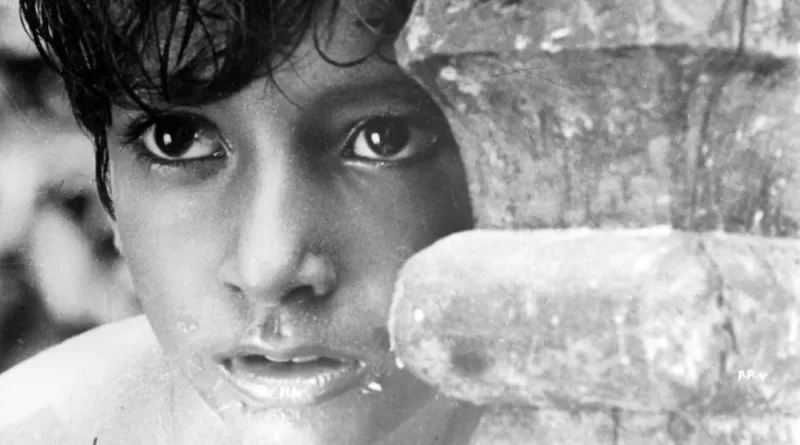Lumière Festival’s Revamped Classic Film Market Unveils Re-Birth Program, Showcases Documentaries, Wim Wenders Foundation
Lumière Festival’s Revamped Classic Film Market Unveils Re-Birth Program, Showcases Documentaries, Wim Wenders Foundation
By Ed Meza
The Lumière Festival’s International Classic Film Market (MIFC) in Lyon, France, is highlighting heritage documentaries, examining Cuban and Swedish cinema and showcasing the work of the Wim Wenders Foundation as part of a newly revamped program.
In overhauling the MIFC, organizers are seeking to position the event closer to industry needs, offer improved services and offer a clearer picture of the ever evolving heritage content market.
The change will “modify the market to be less institutional and more business oriented,” says Gérald Duchaussoy, who oversees programming and coordination for the MIFC.
The market, which runs Oct. 17-20, kicks off with a keynote by Claire Brunel and Hella Wenders, the managing director of the Wim Wenders Foundation.
The Düsseldorf-based organization, created for the purpose of preserving, maintaining and disseminating Wenders’ works, is very unique and its presentation will be a very interesting opportunity for MIFC participants to learn how it’s managed and how it operates in the market, says Duchaussoy.
The Lumière Festival will also be honoring Wenders with this year’s Lumière Award and celebrating his cinematic and photographic works.
The main new event debuting this year is the Re-Birth Program, which presents 12 films in two separate sessions aimed at creating new business opportunities by bringing together rights holders of heritage content and buyers, sellers, distributors, programmers, labs, publishers and other potential partners that may be able to help finance restoration projects or offer new commercial prospects for classic titles.
The first Re-Birth session presents six newly restored films selected for the Lumière Classics label that will be presented with the aim of finding a complement to distribution or broadcasting, such as new formats, channels, media or new territories.

The selection comprises Carlos Vilardebó’s 1965 Portuguese film “The Enchanted Isles”; René Vautier’s 1978 documentary “Marée Noire et Colère Rouge”; Yong-Gyu Yun’s 1949 South Korean drama “A Hometown in Heart”; Juan Antonio Bardem’s 1955 Spanish neo-realist noir thriller “Death of a Cyclist”; Arvo Kruusement’s 1978 Estonian drama “A Woman Heats the Sauna”; and Leopold Lindtberg 1953 Swiss post-war drama “The Village.”
The Lumière Classics label also serves as “a bridge between the festival and the market,” says Duchaussoy, adding that it helps the films “find new outlets they didn’t have before.”
The second Re-Birth session presents six projects that are seeking support and funding to carry out or complete restorations as well as potential distribution partners.
They include Mauro Bolognini’s 1963 Italian film “Corruption”; Jacques Rozier’s 1970 French comedy-drama “Du Côté d’Orouët”; Juris Podnieks’ 1986, Soviet-era Latvian documentary “Is It Easy to Be Young?”; Fernando E. Solanas’ 1998 Argentine drama “The Cloud”; and Carlos Serrano de Osma’s 1947 Spanish film “The Black Mermaid.”
Also part of the selection are the first four Austrian and German TV movies directed by Michael Hanecke, including the 1976 titles “The Rebellion” and “Three Paths to the Lake” as well as parts one and two of 1979’s “Lemmings.”
Heritage documentaries will be a common thread running through several events during the MIFC, which is also celebrating France’s Year of the Documentary.
It’s an opportunity “to put a light on classic documentaries because it’s a complicated niche,” Duchaussoy explains. “It’s a niche inside a niche.”
While some major classic documentaries continue to be widely distributed, many lesser known works have found distribution more difficult. For rights holders, it is an opportunity to see how greater dissemination can be managed and how their titles can be preserved, restored, accessed and sold so they can be seen again, Duchaussoy adds.
The documentary showcase will include a focus on Cuba and the school of documentary in Cuban cinema, which boasts more documentary works that scripted films, Duchaussoy points out.
Cuban films screening at the market will include Ernesto Daranas’ 2022 documentary “Landrián,” about the censored works of the late Cuban director Nicolás Guillén Landrián, and three of the filmmaker’s restored shorts, “En un barrio viejo (1963), “Ociel del Toa” (1965) and “Los del Baile” (1965), which have never been seen in France.
Other roundtables will discuss documentary classics and feature reps from such companies and organizations as Les Films du Losange; Documentaire sur grand écran; Ciao Films; la Cinémathèque du Documentaire; and Germany’s Arsenal Institute for Film and Video Art.
Swedish cinema will be in focus with a case study on current heritage issues in the country and a screening of Hasse Ekman’s 1950 mystery drama “The Girl With Hyacinths.”
Another country showcase will examine efforts to recover and preserve Senegalese cinema history.
A panel on the potential use of artificial intelligence in the heritage sector will discuss likely future possibilities of the technology.
In addition, special market screenings for exhibitors include Satyajit Ray’s 1955 Indian classic “Pather Panchali” (“Song of the Little Road”); Rozier’s 1986 comedy “Maine Ocean”; and Tsui Hark’s 1980 Hong Kong thriller “Dangerous Encounters of the First Kind.”
Changes at the market this year also include an enlarged MIFC village, more stands and private meeting spaces for participants. Professionals from more than 500 companies and organizations will be attending the MIFC, with a total of 30 countries represented.
*Fuente: Variety

